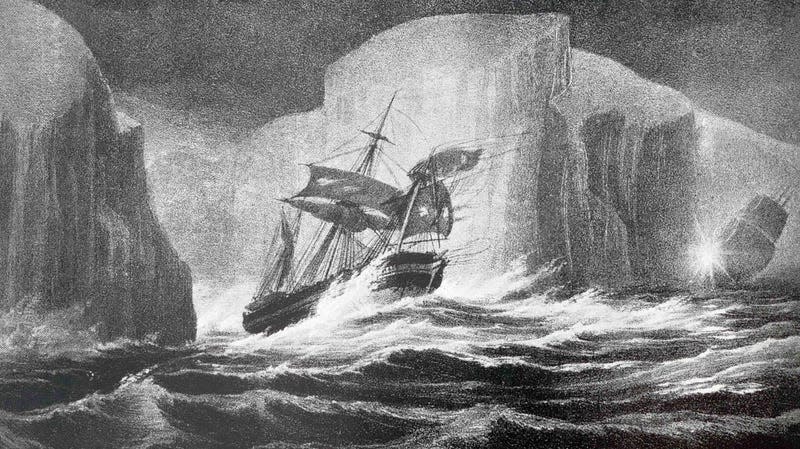
The mysterious fate of Captain John Franklin’s doomed 1845 voyage into the Arctic to find a way through the Northwest Passage has captured imaginations for over a century and a half. A recent scientific paper shed light on the gruesome ends for the expedition’s sailors, confirming that James Fitzjames, the captain of the HMS Erebus, was the first identified victim of cannibalism on the expedition.
The paper, published in the Journal of Archaeological Science, aimed to identify the remains of a senior officer recovered in the early 1990s. Researchers also stated that the remains featured cut marks consistent with cannibalism. The expedition’s two ships, HMS Erebus and HMS Terror, departed England in May 1845 but never reached the Pacific Ocean via the Arctic. The ships were stranded in the Victoria Strait’s ice in modern Nunavit for over a year. Fitzjames was among the survivors who finally abandoned the vessels in 1848, staggering southward across the frigid and barren King Williams Island to a whaling outpost some 800 miles from their stranded shipsuntil they perished. The paper states:
Concrete evidence of James Fitzjames as the first identified victim of cannibalism lifts the veil of anonymity that for 170 years spared the families of individual members of the 1845 Franklin expedition from the horrific reality of what might have befallen the body of their ancestor. But it also shows that neither rank nor status was the governing principle in the final desperate days of the expedition as they strove to save themselves.
Fitzjames was the first identified victim, but not the last. Researchers found that at least four of the 13 men who died at the particular site were also cannibalized by other survivors. These findings confirm 19th-century Inuit accounts of finding mutilated bodies. The Inuit reports were known at the time but hidden from the victims’ families and the British public because of the taboo surrounding cannibalism. No less than Charles Dickens argued in a paper that the Franklin expedition could not have resorted to cannibalism due to their stalwart British morals.
The British knew of the Inuit sighting the remnants of the Franklin expedition because it encouraged further voyages to search for the Franklin expedition’s two lost ships. Robert McClure set out in 1850 to find the lost expedition, but the McClure expedition spent three years trapped in the ice. However, McClure and his crew were rescued by HMS Resolute, the ship of presidential desk fame. McClure’s search was unsuccessful, but his expedition was the first transit to the Northwest Passage. The Erebus and the Terror weren’t found until the 2010s.







